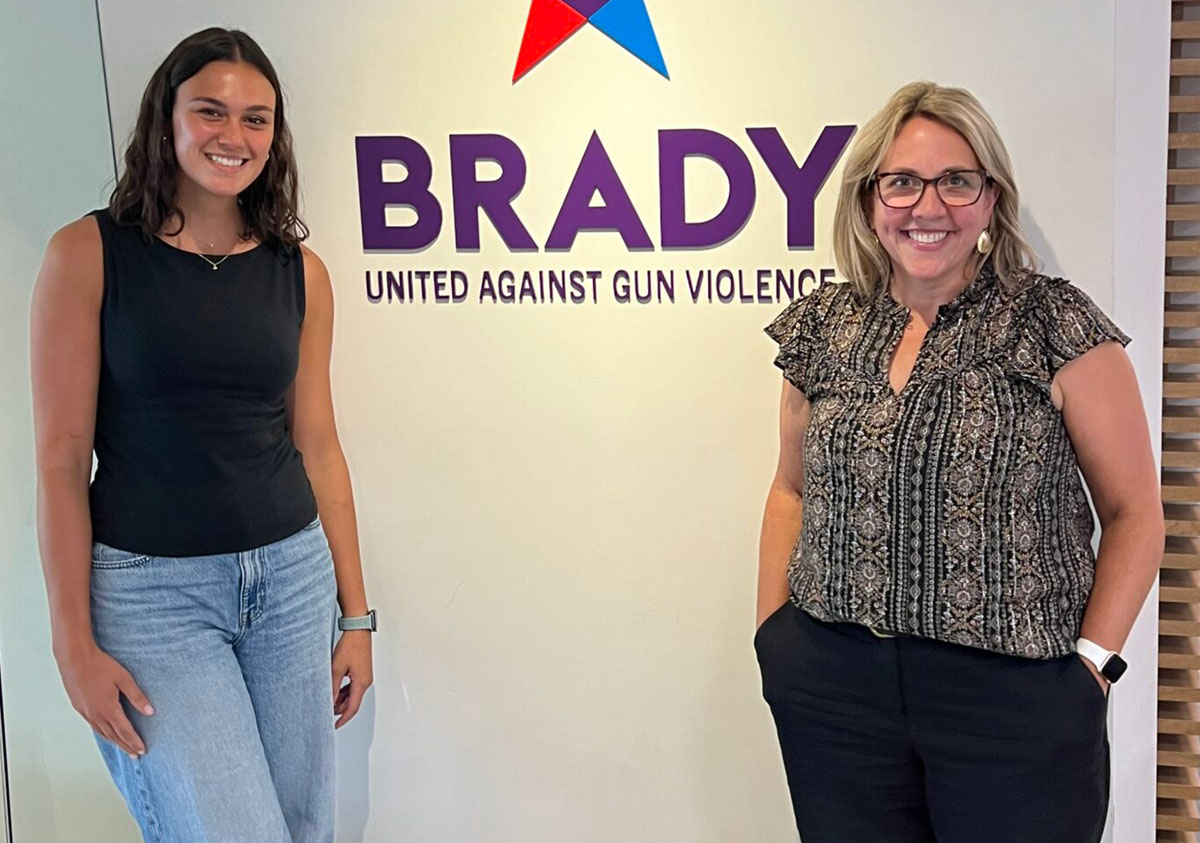Nursing Student, Professor Take on Gun Violence as Public Health Issue
By Andrew Goldstein | Marketing Communications
Treating children with gunshot wounds is all too familiar to critical care pediatric nurse practitioners like Dr. Christine Schindler. Stories that begin with illegally purchased and improperly stored firearms usually end in one of Schindler’s hospital beds — often tragically.
“Nurses are on the front lines of the gun violence epidemic, and we have an important voice to bring to the discussion on a local, state and national level,” Schindler says.
The clinical professor in the College of Nursing is leading a study focused on increasing political consciousness and health policy advocacy among nurses around gun violence prevention issues. Through involvement in professional organizations, specialized training for legislative visits and op-ed writing workshops, Schindler hopes to give nurses the tools they need to advocate for societal change.

Marquette Nursing Student, Madeline Macek, (left) and Professor Dr. Christine Schindler
“I hear stories all the time about cases where a kid accidentally shot his or her sibling in the house because the gun wasn’t properly stored.”
Maddie Macek, senior nursing student
She has a partner in these endeavors: senior nursing student Madeline Macek. A participant in the disciplinary honors program, Macek is bringing Schindler’s work to Marquette students by starting a Team ENOUGH chapter on campus. The new organization is part of the youth outreach wing for Brady: United Against Gun Violence, one of the nation’s most prominent anti-gun violence nonprofits.
“Once I grow up, I want kids of my own and I would want to know whether there’s a gun in any house that I take them to,” Macek says. “Hearing stories of kids hurt by gun violence just makes me want to advocate for them more.”
Macek emphasizes that the work she and Schindler are doing is not opposing gun ownership, which is an important message in a country where more than 40 percent of all citizens are part of gun-owning households. Rather, the message they want to get across is about using and storing guns safely. The latter is especially important to Macek, who recalls being stunned when she first learned that eight kids every day are accidentally shot in America.
“People in pediatric nursing are seeing kids come into the hospital with gunshot wounds all the time,” Macek says. “I hear stories all the time about cases where a kid accidentally shot his or her sibling in the house because the gun wasn’t properly stored.”
This work extends far beyond Marquette’s campus. Schindler and Macek traveled to Washington, D.C., this summer to learn about the political environment around gun violence and to get advice from legislative directors on which bills to support. This trip was made in partnership with Marquette’s Les Aspin Center for Government.
Both researchers anticipate applying their learnings from the trip — Maddie for the administration of Marquette’s Team ENOUGH chapter and Schindler for a research project focusing on upstream interventions to improve child safety. The partners have discussed recording videos in the new simulation laboratory about how to lock up firearms and the right way to talk to others about the subject.
“In the past, disciplinary honors students have joined my research projects, but this feels like a true partnership where we’re starting something from the ground up,” Schindler says. “That opportunity to engage people in so many ways — extracurricular organizations, videos, production of research — is what makes this exciting.”
The research part of the project has already started. Schindler used the Political Astuteness Inventory — a 40-question survey that measures knowledge about influencing change through the political process — to measure students’ engagement in the political process. Following health policy advocacy training and a day advocating for policies at the state capitol, Schindler saw an increase in both quantitative and qualitative measurements in students’ knowledge and comfort with the advocacy process.
“We want Marquette nurses trained in both the technical competencies as well as the advocacy and public policy competencies; those two things are part of our professional obligation to protect public health,” Schindler says.
Macek is hoping to present her part of the initiative at a nurse practitioner conference in Chicago this year and is interested in doing more advocacy work in the future. Her goal is to ensure that as many children as possible are saved from becoming gun violence victims.
